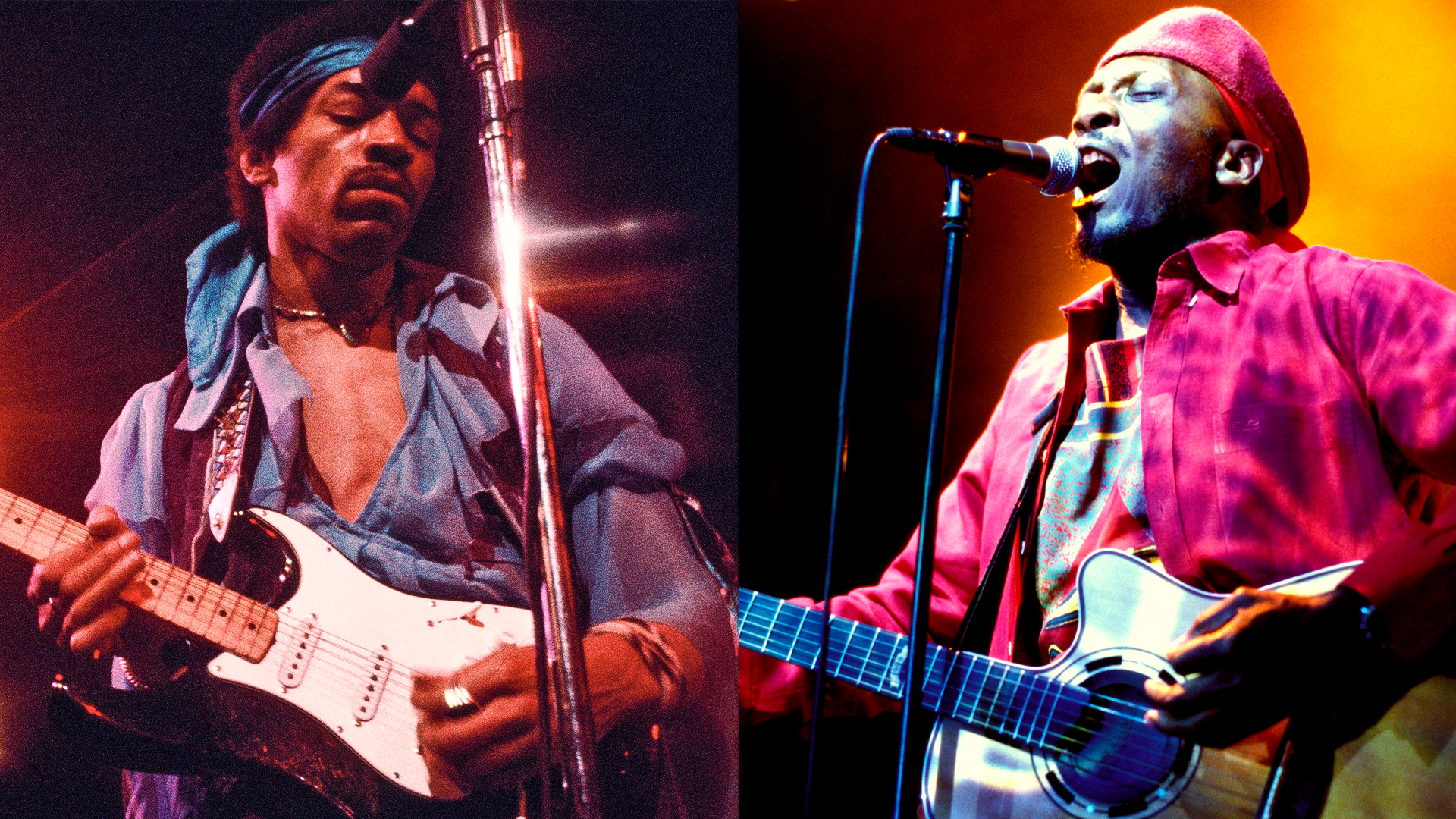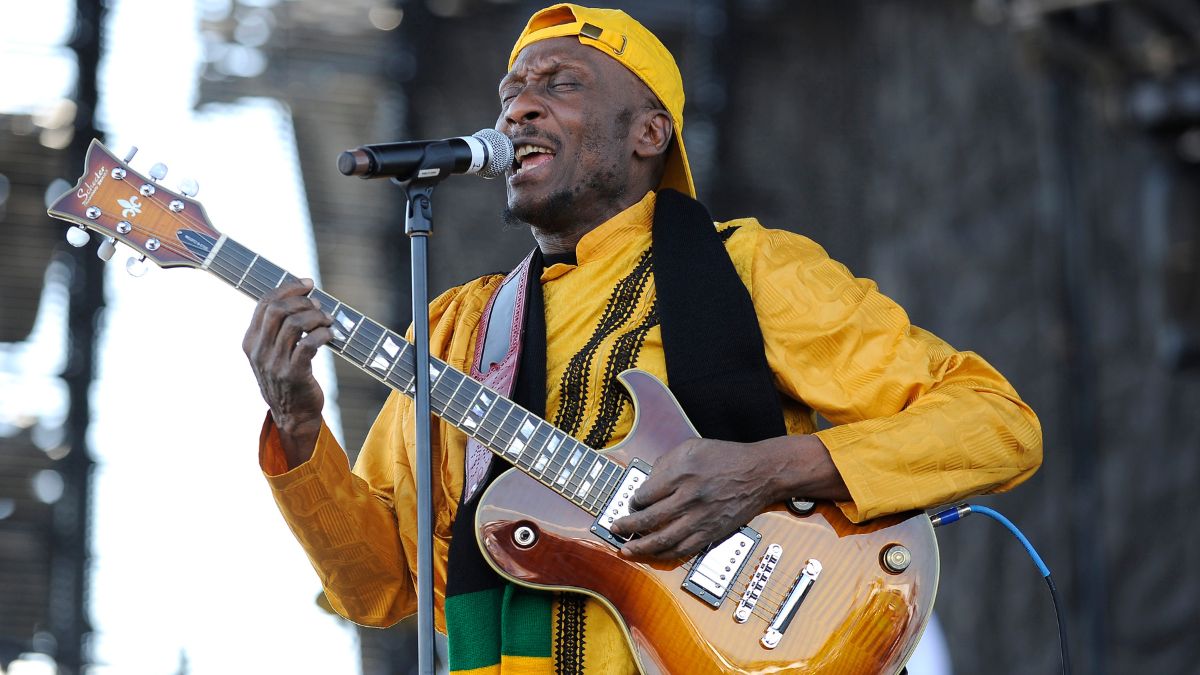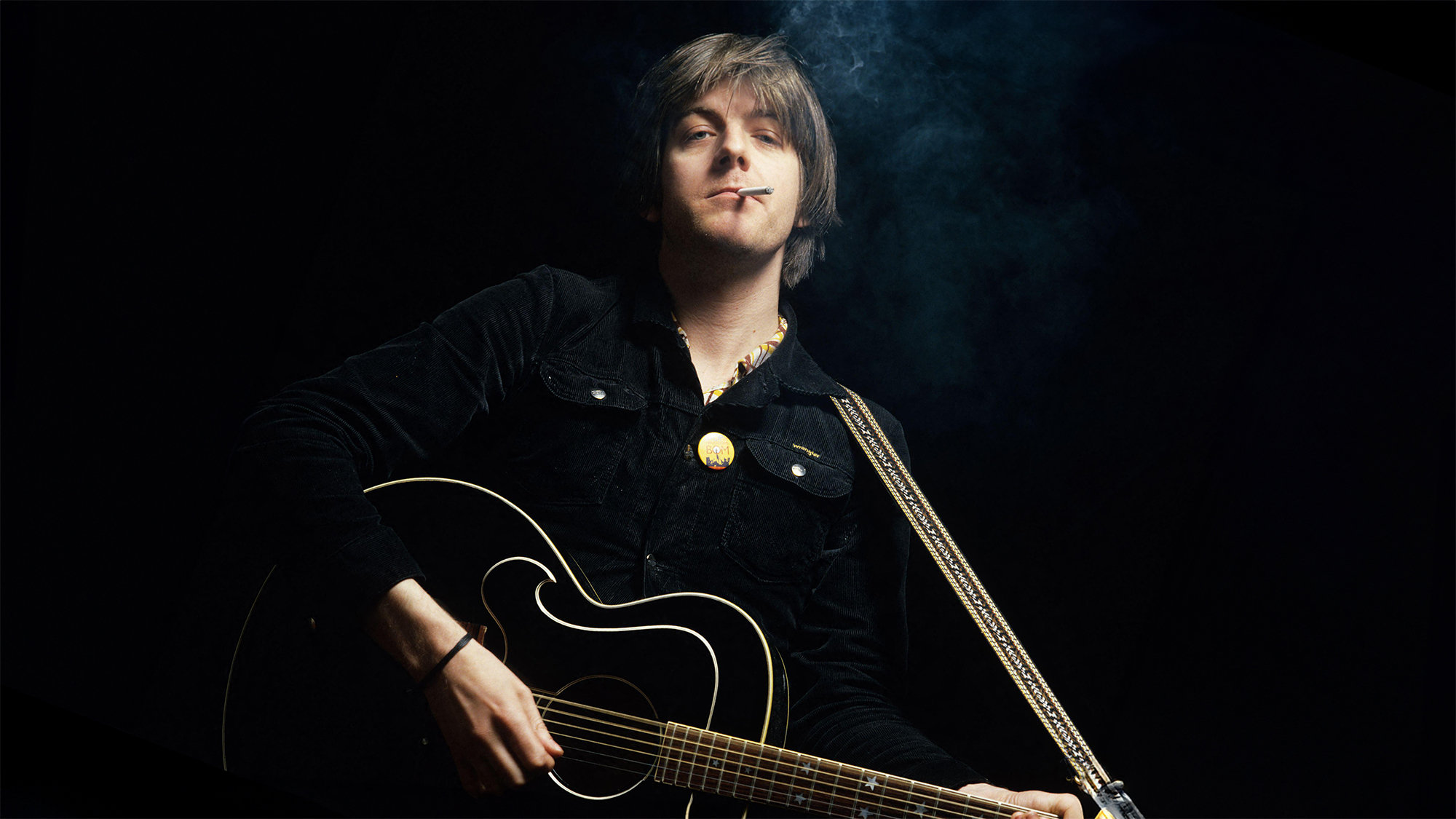“He said, ‘I can't sing. I can just play my guitar.’ Then he went on and tore the place up.” The late reggae pioneer Jimmy Cliff on meeting Jimi Hendrix when both were struggling musicians in London
The reggae icon who raised reggae's profile in England and America died November 24 at age 81

All the latest guitar news, interviews, lessons, reviews, deals and more, direct to your inbox!
You are now subscribed
Your newsletter sign-up was successful
Reggae giant Jimmy Cliff was still working to make a name for himself when he was billed with another left-handed guitarist new to London's music scene.
“I used to play the clubs,” Cliff told Reggaeville in 2012. “I think I was playing in Nottingham. A week before my gig, they asked me, ‘There's this new guitarist, do you mind if he opens for you?’”
That new guitarist was Jimi Hendrix. The two men left a lasting impression on one another.
”I used to do two sets, so they said, ‘Do you mind if he does one set in between your two?’” Cliff explained. “I didn't mind. I didn't know him.”
Cliff had just completed his first set when Hendrix approached him.
”He came to me and said, ‘What's the name of your band, man?’ I said, ‘Jimmy Cliff and the Shakedown Sounds, and he said, ‘Maaaaan, you can sing! I can't sing. I can just play my guitar.’”
That sort of quip wasn’t unusual for Hendrix, who often downplayed his vocal talents and talked up other players, such as Rory Gallagher and Billy Gibbons, as far better talents than he was.
All the latest guitar news, interviews, lessons, reviews, deals and more, direct to your inbox!
“Apparently, he didn't have all that much confidence in his singing. But then he went on, and he tore the place up,” Cliff said with a laugh. “After that, we became pretty close. Every time we were coming back from a gig up north or down south, we'd stop at a café and talk about how our gigs went and how things were going. He was one of the kindest people you could ever find.”
The two strangers in a strange land — and one certainly a lot colder than Cliff’s Jamaican home — confided in one another. Like Hendrix, music was something to be inspired by in a tough world. It became all he thought about.
Cliff, who would go on to become a pivotal figure in bringing reggae music to a global audience, died November 24, at age 81.
His wife, Latifa Chambers, announced his death via Instagram, revealing that the pioneer “has crossed over due to a seizure followed by pneumonia.”
Cliff was still a schoolboy when he scored his first record deal under rather unusual circumstances. He had written his first songs before he’d hit his teens, having constructed his first guitar from bamboo.
After moving to Kingston at age 14, he convinced Leslie Kong, the co-owner of a Kingston ice cream parlor and record store, to pivot into the music industry. The bold move worked. Kong launched the label Beverley's with Cliff, his first signing. His third single, "Hurricane Hattie," gained popularity when it was released in 1962. That prompted him to move to London, where the singer and guitarist — he played both acoustic and electric models — soon crossed paths with Hendrix.
“What else was there for people like me to do?” Cliff once mused about his music career in an interview with Mojo. “The polarization of the socio-economic scene in Jamaica meant there was hardly a middle class. There was the really rich or the really poor, and if you are really poor, you get a fairly average education, so you can learn a trade.

“But for a lot of people, they want more. Because the music industry was localized, it was there on the doorstep, people like me started thinking they’d give it a go because you just knock on a door and ask.
“It was like London in the ’70s with punk. It was like music is for everyone, we can all do it, just give it a try and see what happens.”
A decade after his first musical success, Cliff starred in 1972's The Harder They Come, Jamaica's first major commercial movie. The crime drama is widely considered the film that introduced reggae to England and the U.S., paving the way for Bob Marley and other greats of the genre.
Asked if he'd have achieved as much success had he never left the shores of Jamaica, Cliff replied, “I had to move to the U.K. to have the big hits. That’s what everyone did.
“Besides the Beatles and the Stones, all these other kinds of music were coming out of London. There was myself, Jimi Hendrix, and a lot of Americans, Africans, and West Indians coming over to stay. It was all one big exciting mix.”
By 1967, the tables had turned, with Cliff returning to Nottingham to support Hendrix at the Beachcomber Club. Their kinship was strong, and the impact they had on the music industry was even stronger.
A freelance writer with a penchant for music that gets weird, Phil is a regular contributor to Prog, Guitar World, and Total Guitar magazines and is especially keen on shining a light on unknown artists. Outside of the journalism realm, you can find him writing angular riffs in progressive metal band, Prognosis, in which he slings an 8-string Strandberg Boden Original, churning that low string through a variety of tunings. He's also a published author and is currently penning his debut novel which chucks fantasy, mythology and humanity into a great big melting pot.


